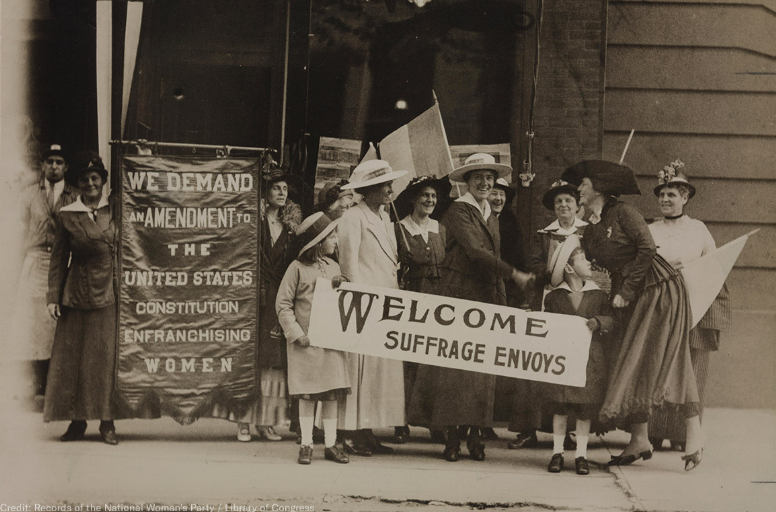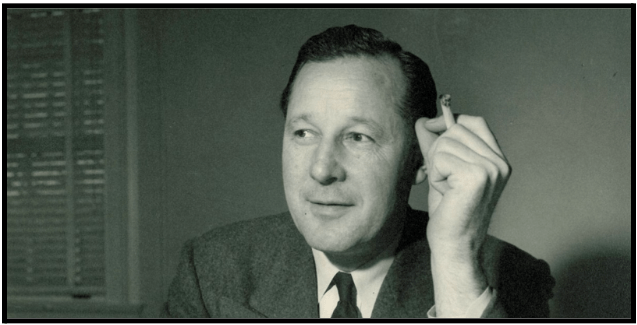Talking Big Ideas.
“Organize, agitate, educate, must be our war cry.”
~ Susan B. Anthony
People from around the world gathered outside Independence Hall in Philadelphia to celebrate the 100th birthday of the United States.
Brass bands played. Cannons thundered. The crowd swelled in the sweltering heat and, according to historian Lisa Tetrault, “quickly filled up every inch of pavement, the stoutest limbs of the oldest trees, and bleachers seating 4,000.”
The emperor of Brazil sat on an elevated stage alongside other foreign leaders, Civil War heroes, governors, and the acting vice president. The original Declaration of Independence was brought on stage and read in full by a Senator, who was also a grandson of one of the Declaration’s signers.
Then something unexpected happened.
An activist named Susan B. Anthony stepped forward. She wasn’t on the agenda. But she confidently walked onto the stage and handed the startled vice president a new Declaration – one that demanded full citizenship rights for women.
Anthony stepped down to the front of Independence Hall and delivered her Declaration as a rousing speech to the captivated crowd. People stood on their seats, shouting and waving their arms, clamoring for a copy of Anthony’s remarks. Her colleagues wove through the crowd, distributing them by hand. The full Declaration was soon printed in newspapers nationwide.
I encourage you to read the script.
This new Declaration helped accelerate the women’s rights movement and pave the way for the eventual passage of the 19th Amendment, securing women the right to vote.
Here are five lessons from one of the boldest July 4th speeches in American history.
1. Seize the Initiative to Make Your Voice Heard
Susan B. Anthony didn’t give up when she was denied a voice in the official centennial ceremony. She spoke anyway.
She and her fellow activists dedicated themselves to changing hearts, minds, and laws. They didn’t wait quietly for their turn. They stepped forward, again and again, driving their cause with urgency and resolve.
You don’t always need permission to act. What matters is being prepared and ready to speak when the moment arrives.
2. Find Common Ground to Build On
Anthony’s Declaration begins with a celebration, not a confrontation. She opens by honoring her audience’s values:
May not our hearts in unison with all, swell with pride at our great achievements as a people: our free speech, free press, free schools, free church?
I love this phrase she uses: “our hearts in unison.”
Anthony believed change begins with common ground. Shared values build trust, draw people in, and make them more willing to listen and change.
Before naming injustice, she reminds the crowd what they already believe, and that she believes it too. Persuasive speakers often begin by sharing common values.
Whenever you want to win people over, start by showing that your hearts are in unison.
3. Bring Your Ideas to Life with Vivid Examples
Anthony doesn’t dwell on abstractions.
She helps us feel the pain of mothers imprisoned for singing hymns in public. She describes women’s property seized by tax collectors, their earnings claimed by husbands, their voices silenced in courtrooms. Her language is vivid and devastating.
Anthony understood that facts alone aren’t enough. You have to make your truth visible. You have to make your audience feel the weight of your ideas.
4. Show What’s Wrong and How It Can Be Improved
Anthony’s Declaration uses the language of the Declaration of Independence to highlight the injustices she’s calling out:
Taxation without representation, the immediate cause of the rebellion of the colonies against Great Britain, is one of the grievous wrongs the women of this country have suffered during the century.
She brilliantly frames the oppression of women not just as unfair, but also as un-American. And she makes the solution unmistakably clear:
We ask of . . . no special favors, no special privileges, no special legislation. We ask justice, we ask equality, we ask that all the civil and political rights that belong to citizens of the United States be guaranteed to us and our daughters forever.
This is a hallmark of effective persuasion: showing the gap between principle and practice and clarifying how to close it.
5. Spread Optimism
Susan B. Anthony had every reason to be bitter. She endured a lifetime of injustice that is hard to fathom today. And yet, this is how she ends her Declaration:
We ask justice . . . for us and our daughters forever.
A clear and compelling call for a better world. A vivid vision that spread through the hearts of minds of Americans nationwide, and eventually succeeded in amending the U.S. Constitution.
No matter how difficult things may seem for you, no matter how bleak the headlines, no matter how discouraged your peers may be, I encourage you to hold your head high and speak with courage and hope. Channel Anthony’s lifelong mantra:
Failure is impossible.
Countless public speakers throughout the ages teach us that one voice, raised at the right moment, can change history. Yours could be next.




